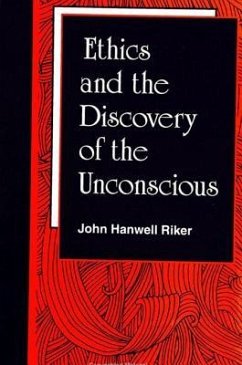This book shows why the discovery of the unconscious by Nietzsche and Freud requires a reconception of the concepts of moral agency and responsibility and even of morality itself. It explicates how contemporary psychology has taken over the traditional task of ethics in elucidating a theory of human well-being, but criticizes this psychology for being unable to generate adequate notions of either responsibility or moral agency. Riker develops a new moral psychology in which the reality of unconscious functioning is included within a theory of responsibility, and the agent's primary ethic concern becomes knowing what her unconscious motivations are and integrating them into a morally and psychologically mature self.
Bitte wählen Sie Ihr Anliegen aus.
Rechnungen
Retourenschein anfordern
Bestellstatus
Storno








